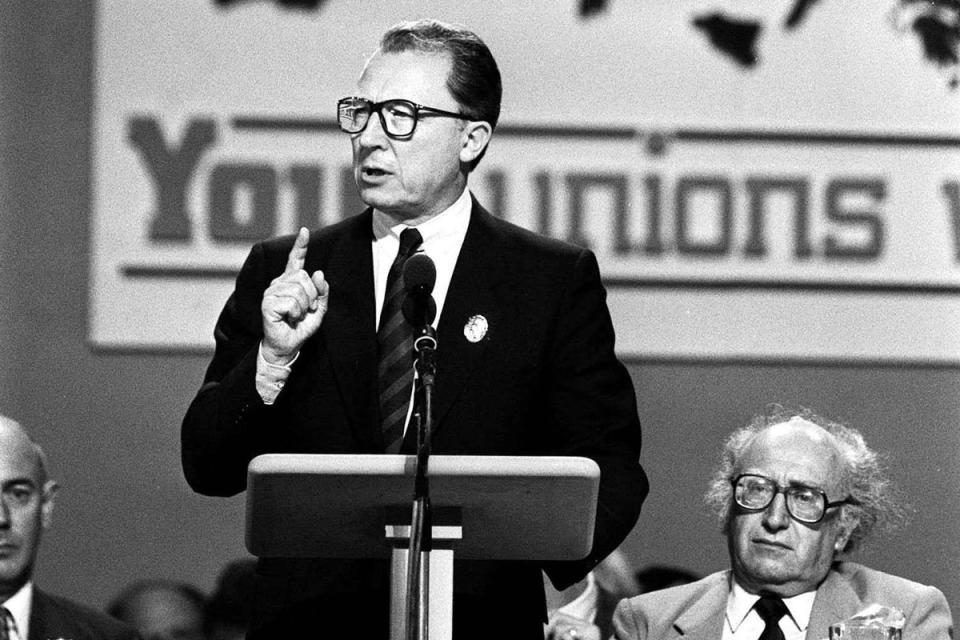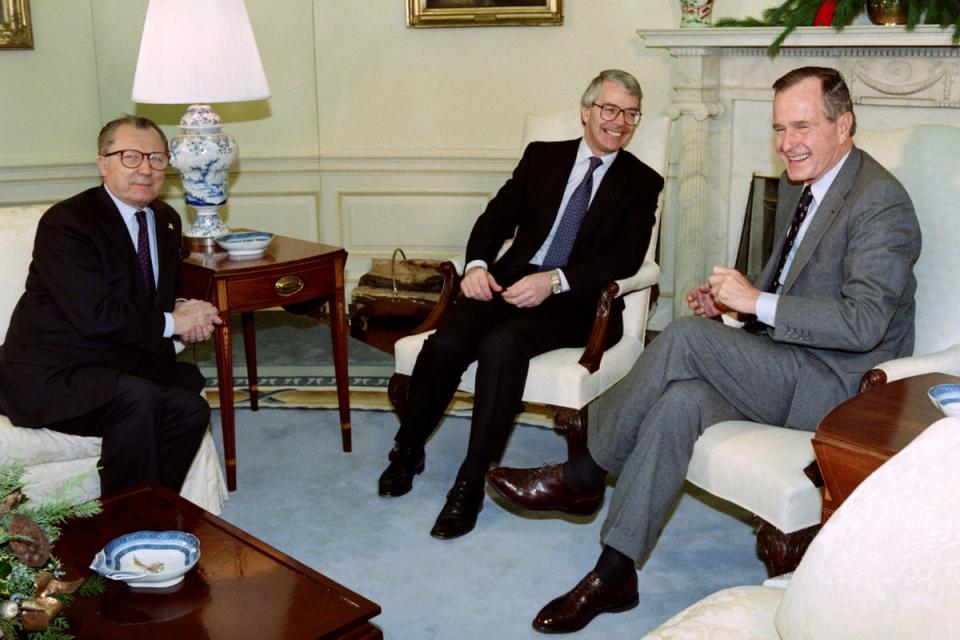Former EU Commission president Jacques Delors dies at 98
- Oops!Something went wrong.Please try again later.
Jacques Delors, the former president of the European Commission, who pushed for the creation of the euro, has died at the age of 98, his daughter said on Wednesday.
He was a leading figure on the French left and a major architect of a more unified and integrated European project – a role that put him at odds with the UK’s then prime minister Margaret Thatcher.
Emmanuel Macron paid tribute to Mr Delors as a statesman who served as an “inexhaustible architect of our Europe” and a fighter for human justice.
Michel Barnier, a European commissioner who oversaw Brexit, said Mr Delors was a “source of inspiration” in French and European politics, while former Swedish prime minister Carl Bildt said: “A truly great European has left us.”
Mr Delors was head of the Commission from 1985 to 1995, overseeing the Schengen border agreements, the launch of the Erasmus student exchange program, and the Economic and Monetary Union that ultimately led to the adoption of the euro.

The era was marked by forthright clashes of vision between federalists such as Mr Delors, who believed passionately in an “ever-closer union”, and Mrs Thatcher, who firmly resisted any shift of power to Brussels.
So antagonistic did relations between London and Brussels become towards the end of Mrs Thatcher’s time in office, especially over the plans for monetary union, that The Sun famously ran a front-page headline reading: “Up Yours Delors”.
He was once a finance minister under Francois Mitterrand and there was speculation he would run in the 1995 French presidential election but he declined.
He founded a European think tank in 1996; Enrico Letta, president of the Institut Jacques Delors, said on Wednesday: “Modern Europe is today losing its founding father.”
L’ Europe de la modernité perd aujourd’hui son père fondateur. La tristesse et les larmes. Le silence et le respect pour la force de son autorité morale. L’engagement total à continuer son combat pour l’intégration 🇪🇺. #Delors #JacquesDelors
— Enrico Letta (@EnricoLetta) December 27, 2023
Peter Sutherland, a former commissioner from Ireland, once described Mr Delors as “extremely tense, like a coiled spring”. He said: “I liked Delors above all for his intellect. He had the most formidable brain I ever encountered.”
Guy Verhofstadt, MEP and leader of the European Movement International organisation, said Mr Delors had been “the most inspirational president of the European Commission”, and his vision was needed “more than ever”.

Mr Delors was an outspoken force at the heart of the Brussels bureaucracy. He oversaw a period of rapid enlargement, with the 10-member European Community, as it was then called, growing to 12 with the accession in 1986 of Spain and Portugal, before adding Sweden, Austria and Finland in 1995.
Mr Delors’ commitment to a united Germany led to a close bond with then German chancellor Helmut Kohl and helped to cement the Franco-German relationship that remains critical to the EU.
He spoke often during Europe’s 2010-2013 debt crisis about his belief in the single currency, the euro, while acknowledging its faults as a project launched with strong political will but insufficient economic underpinning.
L'ancien président de la Commission européenne, père de l'euro et figure de la gauche française, Jacques Delors, est décédé à 98 ans, a annoncé à l'#AFP sa fille Martine Aubry. pic.twitter.com/izHb2ZNrnW
— Agence France-Presse (@afpfr) December 27, 2023
Mr Delors was born in 1925 into a devoutly Catholic family; he earned a degree in economics from the Sorbonne and followed his father into a career at the Bank of France, his country’s central bank.
A union member from a young age, he joined the Socialist Party in the 1970s.
His death was confirmed to AFP by his daughter, Martine Aubry, the socialist mayor of Lille.

